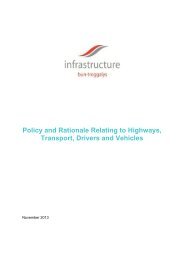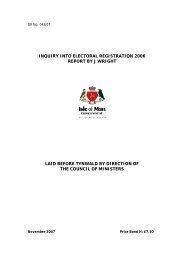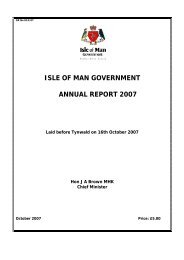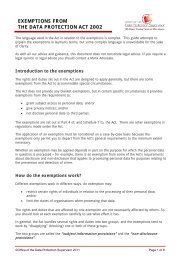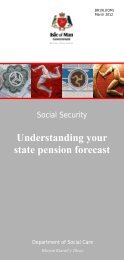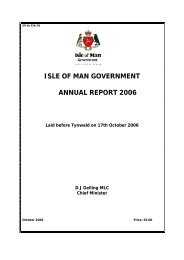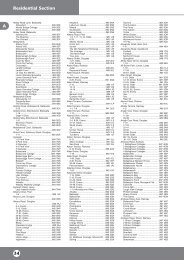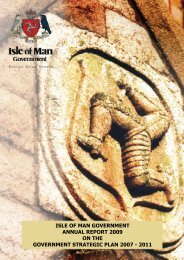Smeaton v Equifax CA[2013] EWCA Civ 108
Smeaton v Equifax CA[2013] EWCA Civ 108
Smeaton v Equifax CA[2013] EWCA Civ 108
You also want an ePaper? Increase the reach of your titles
YUMPU automatically turns print PDFs into web optimized ePapers that Google loves.
elationship between the losses alleged and the breaches of duty found by the judge<br />
would perhaps have introduced something in the way of a reality check. Had the<br />
judge looked at both issues together he might I think have had a better opportunity to<br />
assess the proposition in the round. As it is, the judge’s conclusion that the breaches<br />
of duty which he identified caused Mr <strong>Smeaton</strong> loss in that they prevented Ability<br />
Records from obtaining a loan in and after mid-2006 is in my view not just surprising<br />
but seriously aberrant. It is without any reliable foundation and completely<br />
unsupported, indeed contradicted, by the only evidence on which the judge could<br />
properly rely. In the light of that conclusion it is tempting to dispose of this appeal<br />
quite shortly, by simply explaining why I have formed that view. However Mr<br />
Richard Handyside QC, for <strong>Equifax</strong>, urged us not to take that course. The judge’s<br />
first two conclusions, and in particular his finding that a CRA has assumed a duty of<br />
care in tort to all whose personal data it holds, have wide implications. <strong>Equifax</strong><br />
would not wish the court to leave those aspects of the judgment undisturbed. I can<br />
see the force of this, and the implications for the industry, and since I have concluded<br />
that the judge has in these parts of the case again fallen into error, it is appropriate to<br />
deal with these points also.<br />
The Bankruptcy Order, its advertisement and its rescission<br />
12. It is necessary to put only a very little more flesh upon the bones which I have already<br />
outlined. The circumstances in which Mr <strong>Smeaton</strong>’s bankruptcy order came to be<br />
rescinded and removed from the register kept at the Land Registry of writs and orders<br />
affecting land are unusual – the judge thought them “highly unusual and probably<br />
unique”. He also described them as “remarkable”. Whilst not therefore providing a<br />
paradigm, they do nonetheless illustrate the features exhibited by a more typical case.<br />
13. The bankruptcy order resulted from a dispute between Mr <strong>Smeaton</strong> and his former<br />
landlords by whom he had been evicted, he alleged unlawfully. Mr <strong>Smeaton</strong> began<br />
proceedings in the Watford County Court seeking damages and compensation in<br />
respect of the alleged unlawful eviction. An application to dismiss that claim led to it<br />
being stayed, not to be proceeded with without the permission of the court. The<br />
dispute escalated when Mr <strong>Smeaton</strong> brought proceedings in defamation against the<br />
landlords. That claim was struck out with costs awarded against Mr <strong>Smeaton</strong>. It was<br />
a statutory demand in the sum of £3,174.25, the summarily assessed costs of two<br />
hearings, which, when unmet, led directly to the making of the bankruptcy order. Mr<br />
<strong>Smeaton</strong> notified the landlords, now creditors, that he would pay the amount<br />
demanded by setting it off against the sum which he alleged was due to him<br />
consequent upon the unlawful eviction. He also applied unsuccessfully to set aside<br />
the statutory demand. On 10 October 2000 the creditors presented a bankruptcy<br />
petition in the Aylesbury County Court. On 12 October 2000 the petition was<br />
registered at the Land Registry in the register of writs and orders affecting land. On 1<br />
March 2001 a bankruptcy order was made by the Aylesbury County Court.<br />
14. The Aylesbury County Court notified the Official Receiver, the “OR”, of the<br />
bankruptcy order and he, pursuant to his statutory duty, caused it to be advertised in<br />
the London Gazette and to be notified to the Land Registry at which it was on 8<br />
March 2001 registered in the register to which I have already referred.


![Smeaton v Equifax CA[2013] EWCA Civ 108](https://img.yumpu.com/22052507/6/500x640/smeaton-v-equifax-ca2013-ewca-civ-108.jpg)
